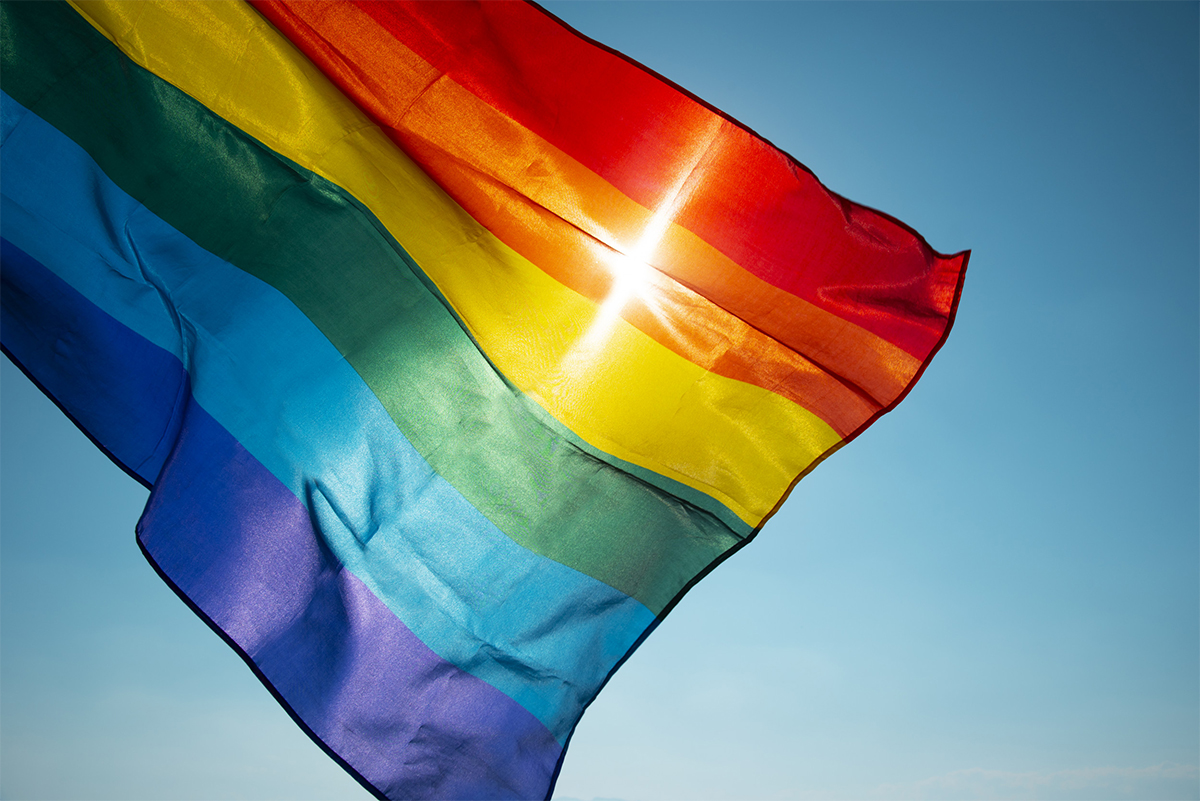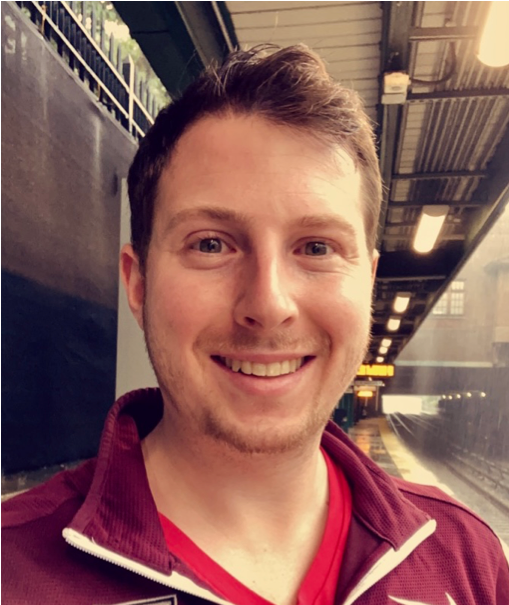
The worst part of living a lie is wondering when they’ll find out; however, the best part of living your truth is discovering the power you have from within. For me, my truth came out over ice cream. You can run scenarios over and over again about how it may play out when you’re ready to tell a loved one, the anxiety behind coming out can be overflowing. The goal though in life is to choose life to the fullest, and you can’t always have that unless you choose to be yourself.
My name is Stuart Moskovitz and I’m LMU’s new director of LGBT Student Services and I am so happy to be of service for the community. As we are in LGBTQIA+ History month, there are millions of individuals who will choose to come out. So much so that there is a day each year, Oct. 11, known as National Coming Out Day, to celebrate those that have chosen to come out and live the life they identify.
First celebrated in 1988, the background of this movement has deep roots grounded in politics around feminist and gay liberation, the goal of which is to be openly queer. Part of this movement let us be able to reclaim the term “queer,” taking away the word’s power to cause turmoil. The date of the 11th comes from the National March in Washington D.C. for Lesbian and Gay Rights one year prior. There were two brave activists, Robert Eichberg and Jean O’Leary, who spearheaded this moment; Eichberg was a gay psychologist who understood human development and O’Leary a lesbian political leader. Together they focused on a way to actively celebrate and maintain positivity behind coming out. Eichberg sadly passed away due to the HIV/AIDS epidemic shortly after this national holiday was passed, and O’Leary died in 2005. I bet they’d be proud of the steps our country has taken to promote those within the queer community from their hard work.
Eichberg has been quoted in the early 90’s saying “Most people think they don’t know anyone gay or lesbian, and in fact, everybody does. It is imperative that we come out and let people know who we are and dispute these fears and stereotypes.” And while this is a harmonious and utopian viewpoint, not everyone is given the opportunity to come out and be themselves. Homophobia, religious intolerance, political climates, lack of safety, and family disownment are a few of a multitude of reasons why people choose to stay in the closet. These beliefs thrive to keep others in power, choosing to silence people’s voices and allowing ignorance to take hold and dig its claws in deep.
But there is a reason why we fight: We’re fighting for rights, justice, and an opportunity to be seen and recognized. Even with legalized marriage, there are numerous places that you can lose your job or be discriminated against just for being queer. Similarly, there are numerous states that deny your right to vote if you’re trans because of one’s lifestyle not matching their national ID. And even years later through numerous wars, the military still tries to deny the opportunity to those within the queer community to serve our country. Queer communities have one of the highest suicidality rates among identities due to the pressures of life. While we are making steps, there’s still a lot to do. It’s a beautiful thing to feel a sense of safety love and belonging, and that lets you focus on the intricacies that come with life and creating human connection.
And while creating a life to live, we continue to find professions that have a disproportional number of individuals that are cis/straight, one of them being male athletics. Between locker room talk, invasive privacy around intimate settings, and potential to hinder the team dynamics, it’s not uncommon for those within the queer community to feel uncomfortable. As someone who played soccer, baseball and ran cross country growing up, I can attest to not always being able to be myself in these settings. I loved the sports, but I found it difficult to make the connections when choosing to keep part of myself and personality at bay. There also wasn’t someone who necessarily looked like me to find the strength of being able to say “they did it and I can do it too.” Presence matters, and for the first time last year, the U.S. had an out gay man under contract in a professional setting for soccer, football, baseball, basketball, and hockey. Across the pond, Europe this year has had their first out gay rugby player and first soccer player to come out ever. This would have been unheard of many moons ago, and representation breaks down walls and destigmatizes implications.
And representation is what has allowed so many individuals to choose new sexual and gender identities. People are now out and making labels for themselves. While these individuals have always existed, the ability to present and perform a certain way hasn’t. Whether it be asexual, demisexual, gray-asexual, genderfluid, pansexual, polyamorous, non-binary, intergender, pangender, or questioning (and there’s more), people are choosing to come out and find a label that matches them. Studies show new generations are looking for positive label descriptors to help individuals navigate their identities and how one “fits” in society.
Lastly, as we are celebrating the coming out process, I want to leave you all with pieces of advice for coming out and navigating spaces: 1) It can take some time to come to terms with being queer, so definitely sit with yourself and choose to come out to yourself first to build self-acceptance; 2) If you are in a space where you do not feel safe or feel like you may be in danger/harm for coming out, then wait. Your safety and life are paramount and you will have time to come out; 3) Definitely come out at your own pace. There is no magic timeline on when it’s the right time to come out. You can tell a pet or plant first as a way to help verbalize it and practice saying the words. I first came out to my dog and chose to come out to my family and close friends before choosing to present myself publicly as queer to everyone; 4) Set up a support system that you know has your back. We have an uncanny ability to form a chosen family, and during this challenging time, support allows you to grow and know you have people or an organization to lean on. Some great organizations are The Trevor Project, It Gets Better, my office (LGBTSS, Malone 201F), and in the greater L.A. community The Los Angeles LGBT Center; 5) Develop ways of self-care when life gets tough. You never know what each day may bring you, so having tools in your tool kit to destress or recognize resources at your fingertips can be quite fruitful when going through the stresses of coming out. And if you’re anything like me, I found comfort in coming out over ice cream because it’s pretty hard to be sad while eating ice cream.
I readily look forward to getting to know the LMU community more and providing support where possible, and if you want to strike up a conversation throughout the year or to chat about life, I’m all ears. It takes bravery for us to be the persons we want to be. Even if hands or minds may be trembling, choose life and let your heart sing. Do it for the joy, the freedom, and for those to come. Cause there’s only one you and you deserve to be you. And to those celebrating, happy National Coming Out Day!
DEI Buzz
- Join LMU in celebrating the LGBTQIA+ community by visiting the hub and learn more about joining the faculty and staff affinity group here.
- Apply for an Inclusive Excellence Project, Capacity Building or Community Healing Practice Grant. Deadline to submit a proposal is Oct. 15. For more information, click here.
- Join us for the second workshop in the Fall semester series led by our 2022 DEI Faculty Fellow, Arnab Banerji (Theatre): Story Circle Facilitation Training. LMU faculty and staff are invited to participate in a Story Circle facilitation training. A Story Circle is a lightly facilitated dialogue process that uses the Rx Racial Healing methodology, the signature practice of the Truth, Racial Healing, and Transformation (TRHT) national network that LMU is now part of. Participants will experience an abridged Story Circle and will then practice developing their own purpose statements and prompts for future circles. Lunch will be served. Please register here.
- Celebrate Latinx/Latine Heritage Month with the community hub.
- For more information on the LGBT Student Services Office and resources, visit here.




